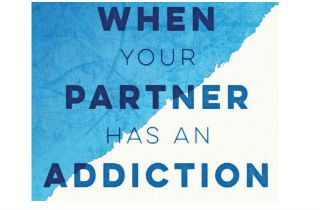Loving an Addict: Is Walking Away the Only Option?
No. Walking away from addiction is not the only option.
The issue of enabling has been popular in the past decade. Enabling has been identified as one of the top struggles people face when they live with an addicted person. Until not so long ago, it has been believed that staying close to the person who’s struggling with an addiction is almost equal to self-victimization.
But what if there was a different option?
Christopher Lawford and Beverly Engel present the topic of living and loving an addicted person from an entirely different angle. More here on the new title, “When Your Partner Has an Addiction” and how it can help you.
Support Your Partner’s Healing Journey
We have all witnessed the transformative and inspiring power of love. Those who face addiction issues need love more than anything else. This book uses love as the greatest weapon against the disease of addiction. Honoring the trauma and shame that are often at the source of addiction, this book shows you how to use your love to support your partner and heal yourself.
“When Your Partner Has an Addiction” provides you with proven techniques and strategies to improve your relationship and help your partner find the help s/he needs.
It is true that we don’t have a magic wand to fix our loved ones problems. In fact, we 100% cannot make addiction disappear. But what we can do is use the love we have to find belief, strength, and do our best at helping a loved one reach a recovery destination.
Take Home Lessons from the Book
In this book, co-authors Christopher Kennedy Lawford and Beverly Engel present ways to support your partner during a struggle with addiction. You’ll come across an approach that focuses deeply on collaboration and compassion rather than conflict and confrontation.
The book is divided in three sections:
THE FIRST PART: “Love, Compassion, and Understanding” focuses on encouraging those who love their partners despite their addiction. Here, partners of addicted loved ones learn how they can use the inspiring and transformative power of their love as a fuel to take actions. This part of the book teaches you how to move past the wall of shame, fear, and emptiness.
THE SECOND PART: “Taking on a Compassionate Attitude”, presents a program specifically designed to help you take a second look at some of your understanding about addiction. The end goal of this chapter is helping you develop a better understanding of your partner, by learning as much as you can about the effects of addiction over people’s personality and behavior.
THE THIRD PART: “Your Role In Your Partner’s Recovery” presents collaborative strategies which should give you an idea about how to help your addicted loved one without falling into the grips of codependence. In the last pages of this section, the authors have prepared a section for self-care. Keeping your spirit strong will help you endure the challenges you and your addicted loved one need to face as you take each step to recovery together.
THE APPENDIX: An additional asset to the valuable content in this book is the helpful Appendix. There you’ll find outlined the definitions of various types of trauma such as neglect, emotional abuse, and psychological maltreatment.
Why We Recommend “When Your Partner Has an Addiction”
One of our favorite things about this book is the sensitive approach it has to trauma and addiction. These two elements are strongly correlated to one another. Both Christopher Lawford and Beverly Engel explain the powerful link between abuse and neglect in childhood and addiction in adulthood.
This book can help you understand the origin of your partner’s addiction, but what‘s even more important:
It can help you develop strong faith that will help you heal past hurts.
What’s more, within the pages of this book you’ll find out what the latest research is telling on the subject of codependency and make a clear distinction between a codependent vs compassionate behavior.
“When Your Partner Has an Addiction” teaches its readers about the behaviors that might block a partner’s recovery. This book has a high value because it provides practical tools and exercises that will train you to become your partner’s greatest collaborator on his/her road to recovery. Building a connection with your loved one and with yourself are the central topics at this book.
We highly recommend this book to all of you who have an addicted loved one and do not wish to give up the love you have for them.
Addiction burns many bridges in your life. This is why it’s very important to rebuild your relationships in recovery… After all, the opposite of addiction isn’t sobriety, but connection.
Where Can I Find This Book?
To buy, download and read the book, check this link: https://www.amazon.com/When-Your-Partner-Has-Addiction/dp/194163186X
Additionally, if you are left with any questions about this book, we ask you to post them in the section below. We also welcome your feedback if you have read the book, and would like to comment and share your opinion or impressions.









Related Posts